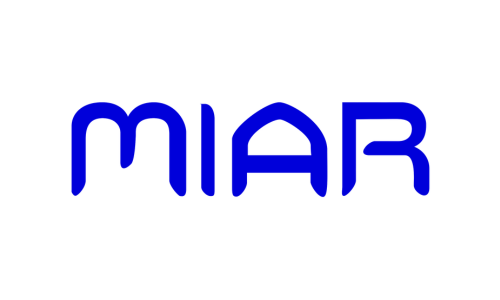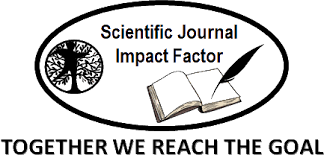Teaching Literature with Creative Problem-Solving in the Second Trimester of Elementary School
DOI:
https://doi.org/10.58885/ijllis.v13i3.32mbKeywords:
teaching literature with creative problem-solving, the literary problem-solving method, the flipped learning method, ethical literary studies, the school literary canonAbstract
Taking ethical literary studies (Virk 2017) into account, the article demonstrates that modern ways of teaching literature can already be used in the second trimester of elementary school. These include creative problem-solving (Žbogar 2007, 2013), flipped learning (Žbogar 2023a, 2023b), the method of solving literary problems (Žbogar 2023c), and knowledge about the neuroscience of reading (Pirtošek 2016). We demonstrate that, through contemporary methods of teaching literature, pupils can be encouraged to gain a deeper understanding of the fairy tale, ethical matters, and the competence to compare it with Dostoevsky’s The Begger Boy at Christ’s Christmas Tree by studying Hans Christian Andresen’s The Little Match Girl.
References
Armstrong, Paul B. (2015): Kako se literatura igra z možgani? Nevroznanost umetnosti in branja. Ljubljana: Znanstvena založba Filozofske fakultete. Prev. Igor Žunkovič.
Kidd, David Comer, and Castano, Emanuele (2013): Reading literary fiction improves theory of mind. Science 342/6156. 377–380. DOI: https://doi.org/10.1126/science.1239918.
Košuta Skok, Ana, 2010: Podobe drugačnosti v sodobni slovenski mladinski književnosti in osnovnošolski pouk književnosti. Magistrsko delo. Ljubljana: Filozofska Fakulteta, Univerza v Ljubljani.
Krakar Vogel, Boža: 2004: Poglavja iz didaktike književnosti. Ljubljana: DZS.
Krakar Vogel, Boža: 2020: Didaktika književnosti pri pouku slovenščine. Ljubljana: Rokus Klett.
Nikolajeva, Maria, 2013: Picturebooks and Emotional Literacy. The Reading Teacher 67/4. 249–254. DOI: https://doi.org/10.1002/trtr.1229.
Pirtošek, Zvezdan, 2016. Umetnost in možgani. Časopis za kritiko znanosti 44/265. 23–38 . https://www.dlib.si/details/URN:NBN:SI:DOC-FOJJ2AX2 (Accessed on 15. 5. 2024.)
Uther, Hans-Jörg, 2004: The Types of International Folktales: A Classification and Bibliophy. Parts I–III. Helsinki: Suomalainen Tiedeakatemia (Academia Scientiarum Fennica).
Virk, Tomo, 2017: Etična literarna veda med kakofonijo in pluralnostjo. Primerjalna književnost 40/2. 13–31.
https://www.dlib.si/details/URN:NBN:SI:DOC-WY9ZMS30 (Accessed on 15. 5. 2024.)
Zajc, Ivana, 2019: Miselni procesi višjih taksonomskih ravni v esejskem delu splošne matu-re iz slovenščine. Slovenščina v šoli 22/2. 4–13. https://www.dlib.si/details/URN:NBN:SI:DOC-SOQ55CLC (Accessed on 15. 5. 2024.)
Žbogar, Alenka, 2007, Za dejaven pouk književnosti. Jezik in slovstvo 52/1. 55–66. https://www.dlib.si/details/URN:NBN:SI:DOC-IJXQ2ZB0 (Accessed on 15. 5. 2024.)
Žbogar, Alenka, 2013: Iz didaktike slovenščine. Ljubljana: Slavistično društvo Slovenije.
Žbogar, Alenka, 2014: Literarno branje in mladostniki. Žbogar, Alenka (ur.): Recepcija slovenske književnosti. Obdobja 33. Ljubljana: Filozofska fakulteta, Oddelek za slovenistiko. 551–557. https://repozitorij.uni-lj.si/Dokument.php?id=171211&lan-g=eng (Accessed on 15. 5. 2024.)
Žbogar, Alenka, 2015: Reading ability and literary competence in language arts classes in Slovenia. The article was published in the Croatian Journal of Education 17/4, pages 1219–1247. https://doi.org/10.15516/cje.v17i4.1271
Žbogar, Alenka, 2022: How to grade literary competence in gymnasium literature classes. Slovene Studies 44/1. 43–58.
Žbogar, Alenka, 2023a: Metoda obrnjenega učenja pri pouku slovenščine (književnosti). Jezik in slovstvo 68/2. 19–30. https://doi.org/10.4312/jis.68.2.19-30.
Žbogar, Alenka, 2023b: Strniševa Večerna pravljica po metodi obrnjenega učenja. Pedagoška obzorja: časopis za didaktiko in metodiko 38/3–4. 67–83. https://www.dspo.si/index. php/dspo/article/view/111 (Acessed on 15. 5. 2024.)
Žbogar, Alenka, 2023c: Metoda reševanja književnih problemov in problemski šolski esej v gimnaziji. Slavia Centralis 16/2. 308–325. DOI: https://doi.org/10.18690/scn.16.2.308-325.2023
Downloads
Published
Versions
- 2024-09-16 (3)
- 2024-08-21 (2)
- 2024-08-21 (1)
How to Cite
Issue
Section
License
Copyright (c) 2024 Author(s)

This work is licensed under a Creative Commons Attribution 4.0 International License.
Declaration/Copyright transfer:
1. In consideration of the undertaking set out in paragraph 2, and upon acceptance by ANGLISTICUM for publication of the manuscript in the Journal, I/We hereby assign and transfer publication rights to ANGLISTICUM, whereas I/We retain the copyright for the manuscript. This assignment provides ANGLISTICUM the sole right and responsibility to publish the manuscript in its printed and online version, and/or in other media formats.
2. In consideration of this assignment, ANGLISTICUM hereby undertakes to prepare and publish the manuscript in the Journal, subject only to its right to refuse publication if there is a breach of the Author’s warranty in paragraph 4 or if there are other reasonable grounds.
3. Editors and the editorial board of ANGLISTICUM are empowered to make such editorial changes as may be necessary to make the Manuscript suitable for publication.
4. I/We hereby acknowledge that: (a) The manuscript submitted is an original work and that I/We participated in the work substantively and thus I/We hereby are prepared to take public responsibility for the work; (b) I/We hereby have seen and approved the manuscript as submitted and that the manuscript has not either been published, submitted or considered for publication elsewhere; (c) The text, illustration, and any other materials included in the manuscript do not infringe upon any existing copyright or other rights of anyone.
5. I/We hereby indemnify ANGLISTICUM and the respective Editors of the Journal as mentioned in paragraph 3, and hold them harmless from any loss, expense or damage occasioned by a claim or suit by a third party for copyright infringement, or any suit arising out of any breach of the foregoing warranties as a result of publication of the manuscript.














